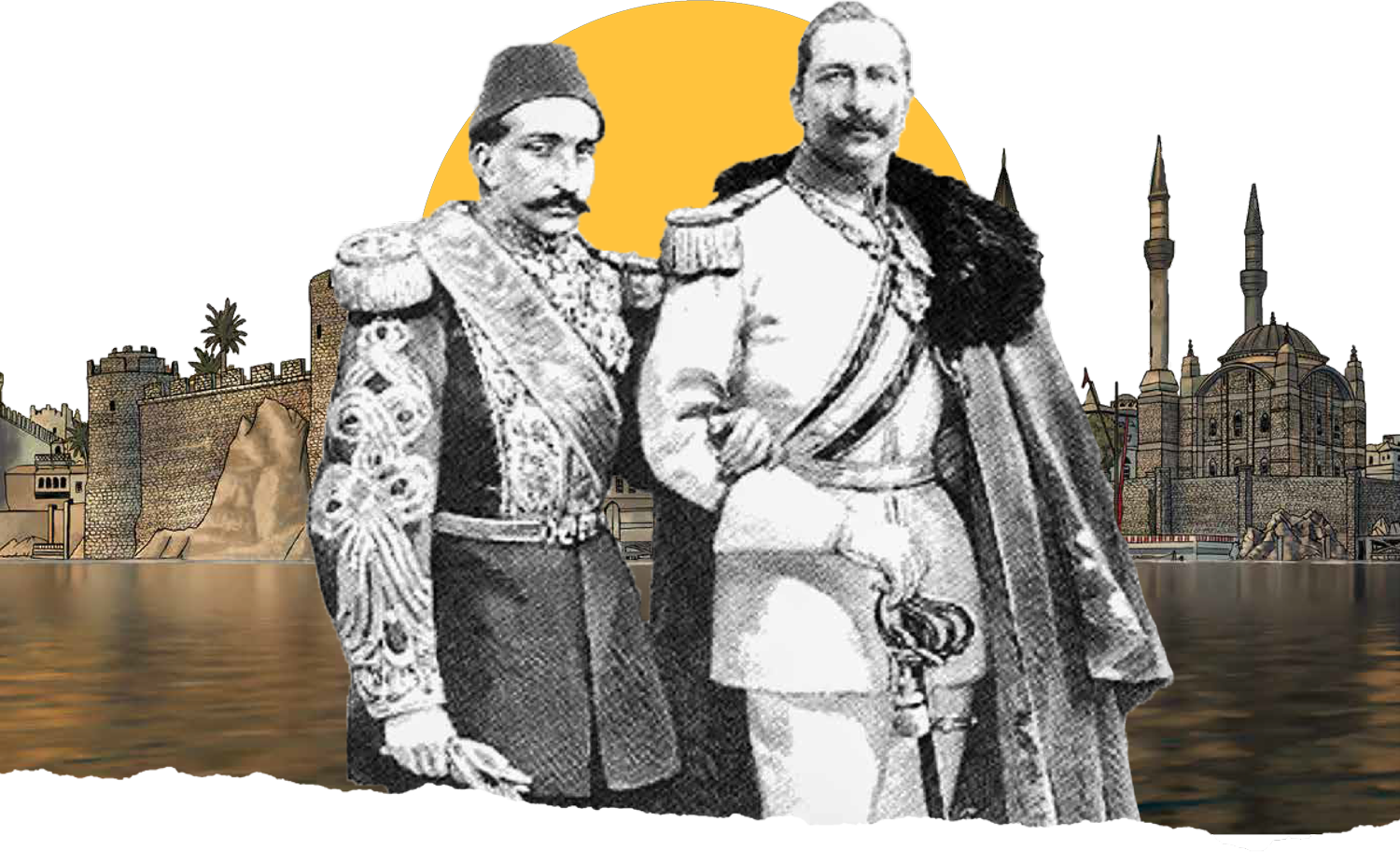
Even in "Pragmatism", He Was Unsuccessful
The Germans Replaced Abdul Hamid's "Idiotic" With the Ambitions of Federalists
Abdul Hamid II distributed the concessions of his state to appease the European countries.

Here we can understand the reason for the tendencies of Abdul Hamid II to ally himself with Germany for merely pragmatic political reasons, despite his leadership of the Islamic League and his hostility to the West, as this is the politics that does not be influenced by religion.
Abdul Hamid II justified his policy of leaning towards and allying with Germany by many factors that have led to that. In his view, there were no adjacent borders between the Ottoman State and Germany, so there were no border disputes. While at the same time he did not deny his deep admiration for the German military system and its ability to support and train the Ottoman Army. In addition to that, the great modernization of the German industries, and the possibility that the Ottoman State could benefit from this condition.
As for Germany, the alliance with the Ottoman State was exclusively pragmatic as well. Perhaps the best indicator in that regard is the report that was written by the German Ambassador in Istanbul, Halter Field, in the beginnings of the year (1880 AD); when he said: “The French influence in Istanbul was ceased by the end of Napoleon I. That influence, which began in the era of Suleiman the Magnificent. Yet, if the French influence was replaced by the English influence during the era of the crafty English Prime Minister, Lord Palmerston. This ended in turn during the time of Lord Gladstone”. He thus pointed out the necessity for Germany to fill that gap. As he requested from the German Kaiser to accelerate towards that purpose.
William II intimated to the Sultan with the delusion of "the Caliphate".

The concerns of European countries increased when Abdul Hamid II granted Germany the concession of the Baghdad railroad line. As this line meant that the influence of Germany was extended in Asia, which was posing a threat to the influence of European, particularly the English influence, in the region.
Abdul Hamid II realized how angry England and France were at the growing influence of Germany on the Ottoman army and economy. So, he attempted to appease them; as Britain was granted the concession of implementing the Western Anatolia railroad line, as well as the concession of repairing the Ottoman Navy. While France was granted the concession of a railroad line in Syria, and also the reorganization of the Ottoman police conditions.
Furthermore, The Turkish historian, “Suleiman Jouka Bash”, asserts that Abdul Hamid II resorted to an alliance with Germany in order to establish a balance between the big European countries that set themselves up as an enemy of him. According to the belief of that the enemy of an enemy is a friend. However, he describes his relationship with Germany as being a “haven of a persistent danger”. As on the one hand, it provoked the great European countries, particularly England, France and Russia. Because of their dissatisfaction with the growing influence of Germany within the Ottoman State. On the other hand, the members of the Union and Progress took advantage of this policy in eliminating the Sultan himself.
Hence, Germany had to request the consideration of its support for the Ottoman state. As that is which was stated by the German Kaiser during his meeting with the Sultan. That if Germany waged a war in Europe against England and France, the Ottoman State should stand with Germany and engage in that war backing it. But Abdul Hamid II wanted to manipulate Germany, and he didn’t realize the “cost” of this conduct. Moreover, he tried to evade these commitments. Accordingly, “the members of Young Turks Association became the favoured ones of the Germans. Sequentially, the Germans began to use the association members’ arrivals and departures from Germany against Turkey and the Sultan”. So, Suleiman Jouka Bash demonstrates the transformations in the relationship between Abdul Hamid II and Germany.
The end of that story was described by the daughter of Abdul Hamid II, by saying that: “My father was unable to confront the Union and Progress Association, which was completely surrendering and obedient to the German propaganda”.
However, the policy of Abdul Hamid II, “the enemy of an enemy is a friend”, did not work out in winning the Germans, nor did it succeed in taming the German ambitions in the Ottoman State. In the end, the monster turned against its creators, and he was dismissed.
The Encyclopaedia of the Ottoman State describes the end of the era of Abdul Hamid II: “After more than 30 years of his accession to the throne, the Empire was, in terms of structure, in a condition that beyond repair”.


1. Thuria Faruqi: The Ottoman State and the surrounding world, translated by: Hatem Eltahawy.
2. Suleiman Jouka Bash: Sultan Abdul Hamid II “His Character and his Policy”, translated by: Abdullah Ahmed Ibrahim.
3. Akmal Eddin Ihsan Oglu “Supervision and Presentation”: The Ottoman State, History and Civilization, Part 1.

